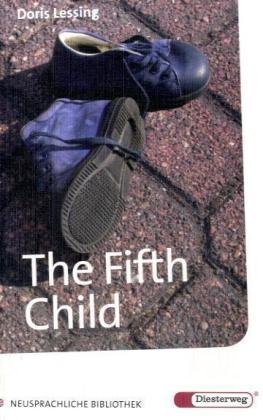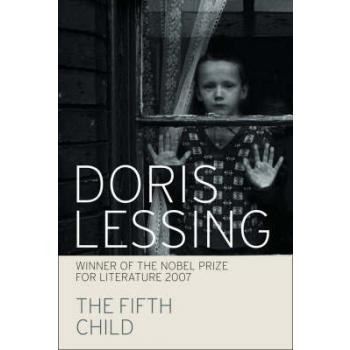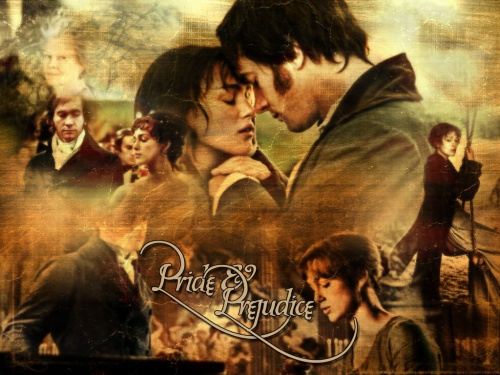-
Par Elarinya le 28 November 2011 à 19:34
November, Tuesday the 22th
Today, we have speak about an other novel : The fifth Child.
It's a book writted by Doris Lessing, an english writter. Incidentally, she was rewarded by the nobel price of litterature. We have read the first pages of the novel and discovered a little bit the story.
The main character are Harriet and David, two young people who lives in England during the 60s. They met themselves at an office party. They are both unassuming and shy. Indeed, the text says about Harriet "She seemed a girl merged with her surroundings". Harriet is "solidly built" and her clothes are unfashionable. We know also thath she is an "healty young woman". She works 'in the sales department of a firm that designed and supplied building materials. David is a man, who "looks younger than he is". His face is candid and he has soft brown hair. He works in the same firm than Harriet, indeed he is architect. The other people see this two characters as excentrics, conservative, old-fahioned not to say obsolescent : timid, hard to please. So they discut at the party and they fall in love, and at the end of the extract, the text says "There they lay on his bed holding hands and talked, and sometimes kissed, and they slept. Almost at once she moved into his flat, for she had been able to afford only a room in a big communal flat. They had already decoded to marry in the spring. Why wait ? They were made for each other". The start of the novel looks like a love story (as Romeo & Juliet or West side story), but apparently it's more complicated...
You can read the first page of The fifth Child here.
We have studied and described differents covers of the novel to try to guess the story :



To undersand the book we spoke about England in the 60s and 70s. It's corresponds to a period of release of the attitudes. The mentalities changed and the yougnsters asserted themselves. It was the start of the pop rock groups, like the Beatles, and the girl are more respected. In 1967 the England authorized the abortion and the pill. It was a really revolution for the women. The sixties are a period of euphoria in England called "The swinging sixties". The most important symbols are mini-skirt, the Jaguar E-type and of course The Beatles. In this period London was the capital of the pop and the mode.

If you want read more about this period, you can download this document, or you can go in this tumblr with great pictures about the Swinging sixites !
 your comment
your comment
-
Par Elarinya le 27 December 2011 à 10:57
November, Tuesday, the 29th
Today we continued to study the first extract of the novel The Fifth Child. He have some questions to understand the texte. You can download the text in the previous post. Here it's the answers :
Paragraph 1 :
The two characters are shy, "old-fashioned not to say obsolescent", conservativ, hard to please and they are critized by the others people. But they think they are only ordinary and should not be criticized because there are unfashionables qualities.
Paragraph 2 :
In this text, we can find a lot of references of the Swinging sixities : pounding rythm, bobbing up, dressed up, dramatic, bizarre, noisy, shook, packed close, revolvong, turntables, full of colour, as much attention, observers etc. It emphasizes the fact that Harriet and David are differents of the world.
The narator describes the scene as though he were at this party. It looks like to the travelling, a techique used in the cinema to reveal progressively, the narrator stops on Harriet and David and zooms on them.
The opinion expressed by the narrator is negative, he despises the others around them, and condamn them.
Paragraph 3 :
The tone of the narrator is very ironic during the description of Harriet. Indeed, she compares Harriet to a dried flower, someone who is easily forgotten, nobody can notices her. She used negative words like : blur, trick photography, unfashionable, thoughtful, solidly built, merged in her surrounding etc.
Paragraph 4 :
As Harriet, the description of David is negative ("he had a round candid face"). Harriet is present in the start of the paragraph. Moreover we cand find many "both", because they understood each other.
Paragraph 5-6 :
We discover that they work in the same firm but not in the same department. We know they discuted, they joked. David had an love affair with a girl reluctantly, and Harriet is virgin. They were unlucky in love but they have the same idea of the love : an ideal and absolute love.
Paragraph 7 :
We know the follow of their relation : they left quietly the office and went in David's flat. They spoke and kissed, and they slept hand to hand, side to side. After they decided quickly to live together. Why ? Because they are made for each other.
.gif )
> As Romeo and Juliet, Tony and Maria, David and Harriet met at a party. They fell in love at first sight, and they are differents, and they believe in a true and ideal love.
 your comment
your comment
-
Par Elarinya le 30 December 2011 à 11:51
December, Tuesday, 6th
Today we studied an other extract of the novel The fifth Child. You can download the text here.
We had some questions about this questions, here you can read the answers.
Around the kitchen table :
The characters are together around the kitchen table, which is the heart of the Harriet and David's House. They are Harriet, David, Dorothy and Alice (Harriet's sisters) and Ben, the fifth child, who is still a baby. Ben is the center of the scene because all the characters are speaking about him. Indeed he is very strange and isn't like the others little boy. He eats a lot of, he is very big for his age "Ben emptied the second bottle", "with is two fists". "What is he ?" asks Harriet, but the others three say nothing. The baby appears like a monster, like a beast or a wild animal. Harriet says with humour "Neanderthal baby", it's a reference to the start of the humanity, and the humans were not yet civilized. They looked like rather monkeys.
At the doctor's :
The doctor doesn't worry because he thinks Ben was breast-fed like the 4 others children., but he's not. He is interesting by the Harriet's bruised nipples, and quite shock by this, but he says nothing about Ben. He thinks Harriet has the baby blues and tries to come her down saying the fact of not loving her baby is usual. But Harriet is feeling realy guilty, she calls her baby "nasty little brute". She knows that Ben is different. In this passage, she doesn't appear as motherly as she used to be with all the other children and that's why the others don't undersand her attitude. She's progressively going to be isolated.
Back home :
The atmosphere of this passage is very peaceful and joyful, because they are a lot of children playing everywhere. It's the dream of Harriet and David. However the things change and we understand that progressively Ben will become the king of the family and little Paul, who was very happy before, will be change and becomes sad, and isolated.
 your comment
your comment
-
Par Elarinya le 30 December 2011 à 13:06
Wednesday; 7th we had a test about the end ot the novel, but I was sick. Tuesday, 13th, we corrected this test and discovered the end of the novel. You can download the text of the test here. It's very sad, because Harriet and David will buy their house, which was their dream, and life could go on. But Ben has left the family and runs away with a gang. You can also download this document, with informations about the autour and a summary of the novel (it's very interesting !). There is an other novel : "Ben in the world", which is the follow of the Fith Child, and speaks about Ben and his thoughts.

The afternoon Maïlis made an oral presentation about an other love history : Pride and Prejudice, an english novel written by Jane Austen. It's quite complicated because they are many characters but in French lesson we saw the film with Keira Knightley and it was more clear. You can read a summary of the novel here (and also a summary chapter by chapter).

At the end of the oral presentation we confronted Pride and Prejudice with the problematic : Love between two peoples, a necessary confrontation with the outside world ? In the novel, it's a duel between Elizabeth, who has prejudices, and Darcy, who is pride. But the problem is also about the social class, because Darcy and Bingley are wealthier than Elizabeth and Jane.
If you want know more about Jane Austen you can go here.
You can see the trailer of the film with Keira Knightley :
 your comment
your comment
-
Par Elarinya le 2 January 2012 à 14:08

"If Romeo and Juliet had lived, do you think their love story would have ended as David and Harriet's one?" Préparer une intervention de 5 minutes à l'oral faisant la synthèse de ce premier dossier, et répondant à sa problématique ("Love between two people: a necessary confrontation with the outside world?")
I think love, which is ideal and strong, doesn't last forever. Indeed, like Harriet and David, love is always confronted with the outside world and they are many hurdles to live happy. In my mine, if Romeo and Juliet had lived their love, it would have ended probably like Harriet and David because there is too many social pressures, dangers which could have threatened their love. Moreover Romeo and Juliet wouldn't have survived to their parents' authority and I think they would have destroyed themselves. Sometimes the every day life and the family kill the love. Romeo and Juliet would have been able to stop loving each other because of the everyday life. Furthermore, they idealized their love because it was forbidden, maybe in other circumstances they would not have loved each other. Although their love is ideal as David and Harriet, they would have been able to get out of breath and they would have probably stopped loving each other at the end of their life. I think that the absolute love is short-lived and cannot last a whole life. What makes it so beautiful is exactly that it is very short but that it challenges the laws and the customs of the universe.
 your comment
your comment Follow this section's article RSS flux
Follow this section's article RSS flux Follow this section's comments RSS flux
Follow this section's comments RSS flux
English and American literature





